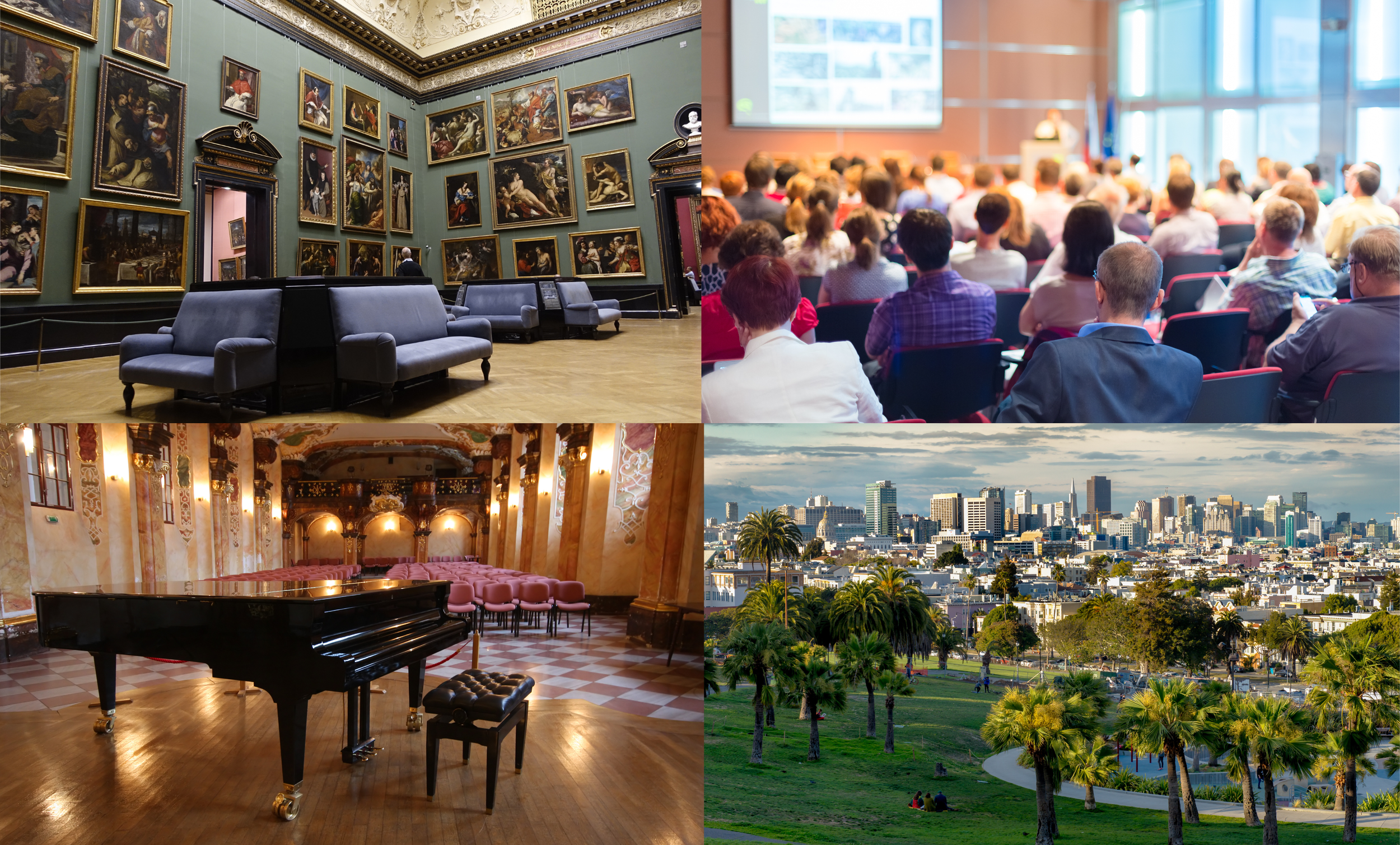
Does The Internet Id Exist Outside Of Public Spaces?
-

A Masked Ball In Bohemia (1748)
Painted by Andreas Altomonte
Metropolitan Museum of Art
Was The Internet Meant To Be An Extension Of Our Private Minds? Or A Public Forum?
Collection: Nobody’s Right When Everybody’s Wrong
Cross-Collection: The Subjective Psychology Project
Format: Article
Length: 3,500 Words | 14 Min
Author: Melissa Nadia Viviana
Date: January 19, 2025
Tags: Social Media, Freud, Moderating Forums, Internet, Consciousness
§
Nobody’s Right When Everybody’s Wrong is a reader-supported publication by Melissa Nadia Viviana; Author, Women's Rights Activist, & Philosopher.
To receive new essays about who we are as a society after 20 years of social media, consider becoming a free or paid subscriber.
The other day, I told someone that I moderate my Bluesky posts. He retorted that Bluesky was a public forum and I shouldn’t be allowed to silence him.
He was promptly blocked, but before he was blocked, I told him that Bluesky wasn’t like X at all, because the premise of Bluesky is actually built on moderation.
That’s why we have mass block lists
That’s why we can detach our comments from other people’s quotes
That’s why we can create new feeds to follow
That’s why we can mute keywords so they don’t show up on our timeline
That’s why we can either hide a person’s comment from our thread
Or block them and detach their comments permanently from our feed
On Twitter, you couldn’t control any of that. And certainly not the comments made on your tweets. This made us powerless to moderate and control our own spaces.
But the consequence of this, is that it led to a free-for-all; a place of pure lawlessness.
And it encouraged (if not invented) mass trolling, spam, and bad agents from foreign countries who pretended to be ordinary people in order to sow chaos and ill will.
And there was virtually nothing we could do to stop it. I wrote about this here.
But the purpose of bringing this up now is that his comment that Bluesky was a “public space” really got me thinking…
What does that even mean? Is the internet actually public?
-

Savannah, Georgia Riverfront
Unknown Photographer
I thought of this idea as I was standing in a public cemetery, next to some busy city streets with restaurants and tours.
I realized that, on the streets, people are polite. Nobody is yelling or cursing at anyone. There’s no harassment. No propaganda. No lying. No insulting. No disinformation.
In the United States, particularly, it’s very rude to be rude to strangers. Largely, we only speak to strangers out of the impetus for polite and friendly conversations.
Only rarely will a stranger be confrontational. But more frequently when we don’t like the behaviors of people in public, we simply mutter “asshole” under our breath and move on.
So looking around at the way we actually behave in public, I see nothing in common with Twitter.
Furthermore, we’ve always considered events that are held in public spaces to have boundaries and parameters.
And we've been doing this for hundreds of years. When you go to an event; a party; a conference, you ask things like, What am I supposed to wear? What am I supposed to bring? What’s the schedule like?
If the rules are that I can't go inside with a water bottle or bring outside food, then that’s what I have to do. Restaurants, museums, sports, concerts.
They all have rules.
And we understand that, because there have always been boundaries and parameters that set a status quo for how to behave in public.
Even on “public property” like a park, or the street, or a town square… there are still laws that dictate permissible behavior.
If you were walking down the street yelling as loudly as possible or blasting music - there are noise ordinances. A policeman can come over and say that you’re disturbing the peace.
If you fight with another person, they can have you arrested for assault. If there’s cause, someone can even get a restraining order to prevent you from approaching or contacting them.
People say, “Twitter is public. Twitter is public. Twitter is public.”
As if that’s some excuse for people to do whatever they want.
In what world do we do whatever we want in public spaces?
Certainly not in the real world.
In fact, the more I think about it, the more I think: Twitter can’t be a public space.
Because the last thing we do is behave lawlessly in public spaces.
This fall, I kicked someone out of a Facebook group that I moderate.
Another person privately messaged me to ask why. I told her that I’d been on a social media hiatus for nearly 2 years and that I had returned only for the duration of the election.
But in being off social media, my social expectations had changed. My tolerance level had changed. I told her:
Social media has normalized toxic behavior that we just don’t do in person. We’re not THIS rude in person. And if we were—people would avoid us.
A lot of people approach me online with an attitude that sounds normal to them because they’ve been on social media for so long that they’ve learned to speak like this.
But if this was someone in person, I would walk away and never speak to them again.
So why would I put up with this behavior on the internet? And certainly, why would I let them stay in my group and talk to me like that again?
As a moderator, I treat my forum like my own house party (and I do host house parties, so I can visualize this one very well).
If you were at a house party and you walked up to the host and insulted them, you wouldn’t be surprised if you were asked to leave the party.
So why would a person be rude to the moderator of an internet space and be surprised when they’re kicked to the curb?
I’m not going to create a space for people to be assholes. Particularly TO ME, in my own house. Why would any sane person do that?
I should add that the forum I moderate is a small group OF LOCALS. And although I haven’t met everybody, I have hosted local events and made public speeches at those events. So I do consider my forum an extension of that real world.
But it still broadly speaks to this unspoken rudeness we take for granted on the internet. Why do we go on a person’s profile or even their thread on Bluesky and act rudely to the creator of the thread?
Would you EVER walk directly up to the host of a party or the planner of an event and insult them to their face? Tell them their catering sucks. Tell them their opinions are stupid.
Of course you’re going to get kicked out.
And perhaps the brazen reason we don’t realize this, is because Twitter, Youtube, et al, allowed us to get away with this behavior for 15 years.
It emboldened our Internet Id.
It made a lack of consequences for a behavior we would simply never get away with in person.
After two years away from social media, my tolerance levels had changed, for sure.
I still have grudges with neighbors and people I deal with in person. I have a love-hate relationship to even some of my friends with obnoxious worldviews. But the wildest thing is that, in person, aversion is your very best friend.
I walk away from people who bring out the worst in me.
And on the internet, it feels like everybody is walking towards you—trying to bring out the worst in you. And it’s impossible to walk away from your own feed, your own notifications, your own forum.
That’s why your ability to cut off that contact is essential for a healthy internet relationship.
After being humanized and recognized as a real person by friends, family, and neighbors, I felt disturbed and uncomfortable with the casual dehumanization that happened on the internet.
I could tell that people were talking to me without seeing me as real. But I wasn’t interested in being a cardboard cutout in someone’s conversation with themselves.
In real life, dehumanization happens all the time. But it’s a helluva lot easier to acknowledge someone as a living presence, when there’s flesh, and blood, and the soul of a human standing in front of you.
So why is it so difficult to humanize someone on the internet?
And where even IS the internet located?
Sure, servers are storing our information somewhere. Photos, videos, & text representations of the people we are. The dialogues and conversations we have with each other.
But how do we know there’s someone on the other side of that content?
When I read a novel or a memoir, there’s no one there talking back to me. When I flip through a photo album, these are just past memories. When I watch television, none of the actors and actresses can hear me talk about them. So why would the internet be any different?
In real life, our senses tell us the person exists. But on the internet, only our imagination can tell us someone exists.
In a round-about way, the real place the internet exists is in our imagination. It’s a virtual world that we bring to life with our minds.
We take the things that people type to us or the photos we see and we find ways to interact and relate to those two-dimensional things in ways that bring the human behind them to life in our consciousness.
We’re not touching or seeing real living humans. We’re projecting a virtual world of interaction—with no sensory. And our imagination brings all the people we talk to, to life.
Perhaps, then, the problem is, if we don’t use our imagination far enough to extend some type of humanization to the person we’re interacting with, then we forget that these people are real because there’s no sensory data to remind us.
If someone doesn’t feel real to you, that’s because your imagination didn’t complete the virtual art.
-

Hands With Paint
Photo by Erika Cristina
The portrait of them that only you can create in order to make them feel real.
This led me to consider that the reason people are so antagonistic, protective, and possessive on the internet is because the internet actually isn’t a public space for them.
It is an extension of their mind. It’s a virtual space they hold within their imagination.
And thus, every time they read a tweet, or a post, or a video that disagrees with their worldview, they take it as an intrusion of their private domain.
As if someone walked up to their house, opened the front door without permission, and started reading a conversion pamphlet aloud to them.
No public forum prepared us for knowing what everybody around us thinks and feels. It’s unsettling, terrifying, uncomfortable.
People are sitting at home, in their private world, on their own couch, on their own computer or phone, creating the interactions with the internet via a virtual space constructed by their imaginations—and yet, within that private space, they’re hearing the thoughts and feelings of millions of strangers all day long.
This is basically telepathy.
There has never been anything like this in the history of humankind. You have never been given access to what people privately think.
The internet is not a public space. It’s a private peek into the mind’s of other people.
And even though, in public, all of these same people exist, it’s only on the internet that we see their private thoughts and feelings as intrusions, rather than actual dialogues.
When we consider the internet a private space for our own thoughts to mesh and cohabitate in this virtual world, then, the posts we pass by become provocative, controversial. They challenge our worldview, our privacy, our sanity, and our emotional stability.
But it doesn’t have to be like this. Sure, the internet isn’t regulated like it’s a public space. But it could be.
We’ve conned ourselves into believing it’s an extension of our private mind. And therefore, it abides by the rules we use on our own thoughts and feelings.
If we have no rules in our minds, then we have no rules on the internet. People expect to participate on the internet with the same lawlessness that they have in the privacy of their head.
They also expect to protect themselves, just as tightly as they would an intrusion on the private domain of their mind.
It seems to me that this makes the internet a highly deranged place to spend our time in.
Getting sucked into the casualness of dehumanizing others and thinking that they’re all just cardboard cutouts dropping by your private sanctuary.
A public forum that allows people to behave like this doesn't exist. There's no public space where you can do whatever you want. Say whatever you want. There’s no public space without rules and expectations.
But isn’t that why it’s gotten so out of hand?
Sigmund Freud wrote about the superego, the ego, and the id. The funny thing is that the superego and the ego were conscious and on the surface. While the id was neither known to the person (it was unconscious), nor was it necessarily displayed in public.
The id was filled with impulses and unconscious drives. Motivated by the “pleasure principle.” Demand your own gratification. Do what’s best for yourself first. Satisfy your own cravings. Think about your own needs. Protect yourself at all costs. Defend yourself to attacks. Fulfill your emotional impulses. Relieve tension. Catharsis.
As someone once described: “The id is not concerned with reality, only with satisfying its needs.” Being ruled by the id is being driven to satisfy whatever urge comes up from the void.
But Freud believed it was the job of the ego to mediate the id. To analyze and rationalize the impulses of the id in contrast with reality and morality in order to ask, Is this desire reasonable? Should I really act on this impulse?
If the desire from the id is to eat the last croissant, but your superego knows that your spouse likes to have a croissant with their coffee and they’re about to wake up—your ego will say: “Don’t eat it. Let them have it.”
It’s your ego’s job to talk your id down from the ledge. And I sincerely believe we all have to do this in public spaces, all the time. Mediate our impulses with the necessities of the world.
So what if the internet has precisely become an extension of our id? What if it’s the first time the id has actually reigned on the surface?
Higher than the ego.
-

Portrait Of A Woman With Paint
Photos by Faruk Tokluoglu
-

What if it’s a place where we act on our unconscious desires—in a lawless virtual forum, where there are few real-world consequences.
After all, if you yell at someone on the street, people will shame you or avoid you. If you slap someone, there will be a bruise and they can have you arrested for assault. If you don’t pay your parking meter, you get a ticket. If you don’t obey stop signs, you get into accidents. If you curse or insult your boss, you get reprimanded or fired.
In the real world, we live with consequences for our id’s impulses and desires. So we constantly have to bargain with it.
But on the internet? You yell at someone, and nobody shames you. Some people even cheer you on! You insult people, nothing happens. No work consequences. No friends lost. You barely have a sense that a real person even had their feelings hurt. You don’t even have to see them cry or look pained.
The internet is the place for our worst selves. A place for us to act on our irrational impulses.
And ironically, still be rewarded with dopamine, celebration, likes, and encouragement.
On social media, mobs are built around our darkest impulses—as other people behaving on behalf of their id chime in and cheer us on.
From my limited experience with Bluesky, I can already see that it wasn’t built on behalf of the id.
At best, it was built on behalf of the ego.
(I don’t currently know any spaces that are built on behalf of the superego, but I’d like to think I’m trying to create a space with higher impulses here on The Beat Philosopher).
But here’s what’s happening in 2025: Musk & Zuck are leaning MORE into the impulses of the id.
After 10-15 years of pure social media chaos—of people embracing their darkest impulses… I truly believe some people have lost themselves to it.
And that’s why 2025 is starting to feel terrifying.
Some people have begun to think that the lawless impulsivity of the Internet Id is their authentic self.
And just like one woman told me, “if I censor myself, fascism wins…” there are people who have convinced themselves that holding back from acting on their id would be letting the other side win.
Musk and Zuck don’t realize what they’ve created. The mob of Internet Id. But they’re showing us that the model they’ve built is based on going all in.
You can’t rein in the mob once it’s created. So under the guise of things like “free speech”—they’re telling people “This is a place where you can be the worst, unfiltered, impulsive part of yourself. WITH NO CONSEQUENCES.”
Your deepest desires, your darkest impulses belong here.
If people behaved this way in public, they’d be shamed, arrested, fired and shunned. And quite frankly, those malignant narcissists who descended on the Capitol on Jan 6th 2021, were shamed, arrested, fired, and shunned.
Unfortunately, they were also celebrated, glorified, and exalted by the Internet Id.
In 2024, after a 2 year hiatus from social media, I wondered if I would ever get back on the internet. Of course, my Substack was already in the works. And I felt like Bluesky was a chance at a brand new moderated forum, not owned by a billionaire aiming to create division and mob consciousness.
People think that the difference between Bluesky and Twitter is political. No, my friend—the difference is that Bluesky might actually be considered a public forum.
Because public forums always had rules, regulations, and expectations for behavior.
And true public forums always had consequences for not obeying the rules.
It was always permitted to remove people from parties, events, concerts, conferences, classrooms, sports events.
If the virtual space of the internet is considered an extension of our private minds, then dehumanization and the aggression of protecting our id will always reign.
But if these virtual spaces are actually built to be extensions of the real world, then they will abide by real-world parameters. They will acknowledge real-world consequences.
Just like everything else in the real world does.
Maybe a portion of the people who joined Bluesky simply didn’t want to be surrounded by the worst selves of humans who behave normally on the streets but are living out their id’s fantasies in a lawless virtual world over social media.
When that guy on Bluesky said that my profile was public, I wanted to tell him, “My profile is a public opportunity. Just like the opportunity to attend an event.”
But you can lose your privilege to attend a public event. You can lose your privilege to eat at a public restaurant. You can get kicked off a public plane. Thrown out of a public classroom.
None of this is a new phenomenon!
And thank the grace of Bluesky, that it’s also possible to lose your privilege to participate on the public forum that my posts create for dialogue and discussion.
On Twitter, there were no rules.
And look at what a fascist, propagandized cesspool Twitter became because of that.
Questions For Discussion:
Do you consider your social media experience ruled by the parameters of public spaces?
Or do you feel it’s an extension of your private mind - and the rules you abide by there?
Which online forums bring out the id of the internet?
Versus the forums that bring out the ego or the superego of users? And what kind of cultural expectations or moderation capabilities encourage those parameters?
15-20 years ago there were forums on the Dark Web (4Chan, & others), in which people expressed their seedy underbelly more often. Have those users moved out into the open over the past 5-10 years?
Once a social media’s entire culture spirals into rewarding users for their base instincts, for their darkest desires, or their selfish impulses - can it ever be redeemed or reclaimed for the ego?
Where do we go from here? Can we create new social medias for the future of our societies? Social medias with better expectations?
Can we create internet “jail-time?” Actual consequences for lawlessness in virtual spaces?
How To Discuss
You can comment below or find a shorter version of this discussion on my profile on BLUESKY.
Subscribe to The Beat Philosopher for more discussions like this.
To Build Community & Get Daily News
Join My Resist Rebel Revolt Discord!
Would you like to be a Premium Member? Join here!
All Rights Reserved © 2025 Elephant Grass Press, LLC
Read more like this!
How Social Media Will Become The Next Technology Used As Warfare In The 21st Century
By Our Enemies, And, Out Of Necessity, By Our Own Governments
Read It Now!Self-Moderating Our New Forums
In Order To Protect The People Within Them From Chaos Agents
Read It Now!




















